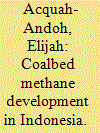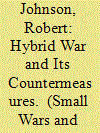|
|
|
Sort Order |
|
|
|
Items / Page
|
|
|
|
|
|
|
| Srl | Item |
| 1 |
ID:
178812


|
|
|
|
|
| Summary/Abstract |
The UK government's policy of support for shale gas extraction ended in November 2019 with the imposition of a moratorium on fracking (hydraulic fracturing) in England, and an admission that the policies to manage induced seismicity were insufficient. However, ambiguities remain regarding its scope, despite attempts at clarification. The concept of fracking to improve hydrocarbon production has evolved from defining a specific engineering process, using high volumes of water, to encompass other ‘unconventional’ methods to achieve the same end. We resolve the various definitions in a scientific, technical, regulatory and legislative context, robustly define unconventional extraction methods (circumventing the need to identify and quantify the various technologies available), and advocate the precautionary principle in drafting and interpreting regulations. Policy should be driven by the engineering of the bulk physical characteristics of the target rock, rather than by the current definitions based on injected fluid volume. To meet climate change concerns, the moratorium should be converted into a ban. In the interim, we argue that, in order to comply with the government's policy of ensuring safe and sustainable operations, the moratorium should be extended to all well stimulation treatments for unconventional hydrocarbon extraction, including acid stimulation.
|
|
|
|
|
|
|
|
|
|
|
|
|
|
|
|
| 2 |
ID:
166730


|
|
|
|
|
| Summary/Abstract |
Due to increasing demand for natural gas in Indonesia, the Government now promotes exploration for coalbed methane (CBM). Currently, Indonesia has 453 trillion cubic feet (TCF) of CBM reserves. However, CBM development in the country is still in the exploration phase, with significant under-investment. To attract investors, a tailored Production Sharing Contracts (PSC) regime is required. Based on a combination of Factor Analysis (FA), Discounted Cash Flows (DCF) and Parameter Sensitivity Analysis, the research explores an optimal scenario of a company's share of revenue that optimised CBM development contracts. We find that a combination of 5 years straight line depreciation (SLD), 5% First Tranche Petroleum (FTP), 78% Contractor Share (CS) and 35% income tax best spreads the risk of CBM development and exploitation between the government and the contractor. This combination is a more suitable PSC regime for developing CBM in an early stage of the industry. Therefore, the Government must cede some taxes during exploration to incentivise CBM development. Three PSCs regimes are thus required to fully develop and exploit CBM, including exploration, transitional and exploitation phase PSCs which better match contractor risks and returns and ensure reasonable certainty of contractor cost recovery.
|
|
|
|
|
|
|
|
|
|
|
|
|
|
|
|
| 3 |
ID:
168266


|
|
|
|
|
| Summary/Abstract |
This article examines critically the literature of hybrid war and evaluates the countermeasures often proposed. It explains the concept of hybrid warfare and its varied interpretations, illustrating how it is a manifestation of current anxieties in armed conflict. The selection of the literature is based on works that are referenced, that offer a scientific approach, and which review either the phenomenon of hybrid warfare or its countermeasures empirically. Unscientific works have been omitted. The analysis of the literature presented here shows that the antidotes to ‘hybridity’ lie not in the operational or tactical sphere but in strategic and political domains.
|
|
|
|
|
|
|
|
|
|
|
|
|
|
|
|
|
|
|
|
|